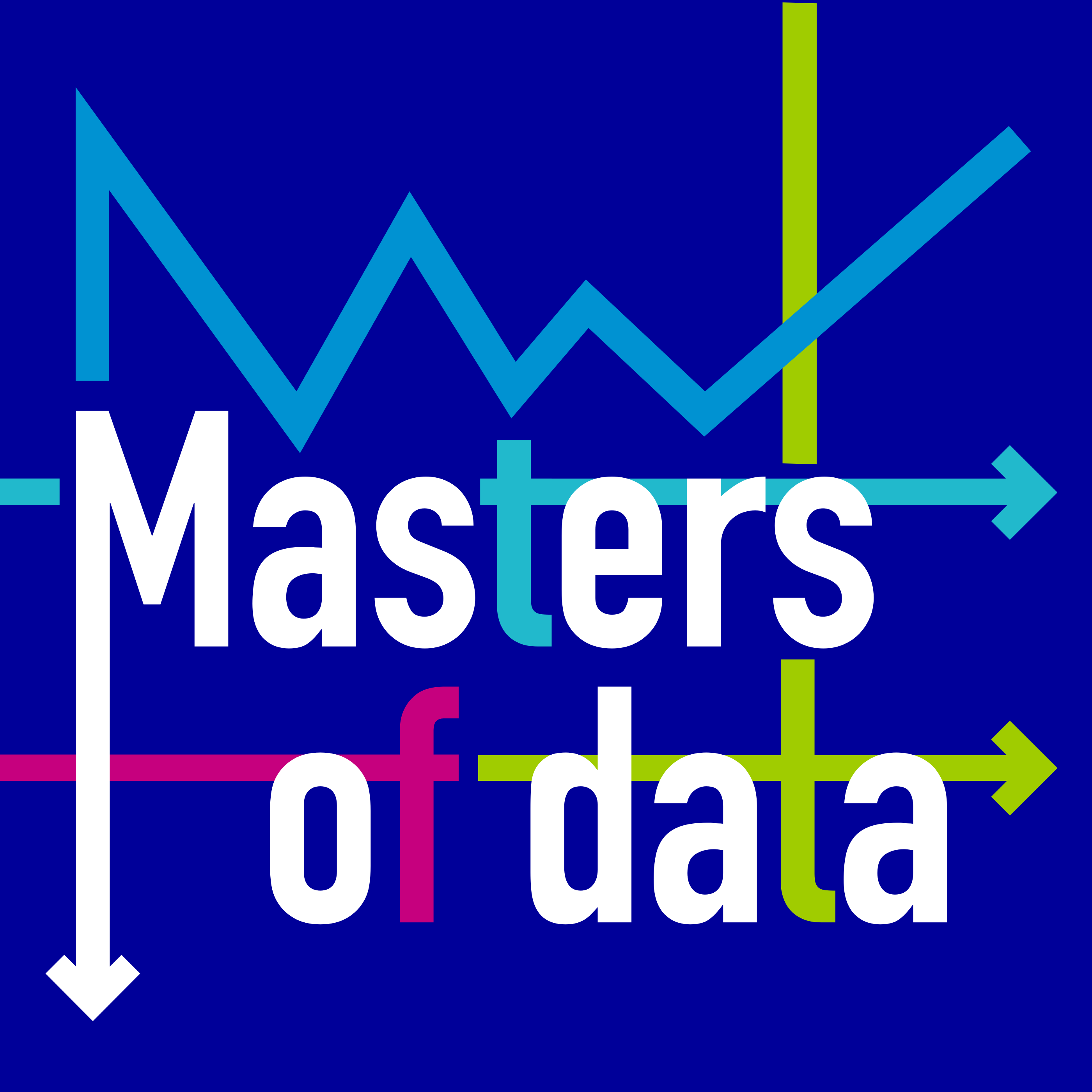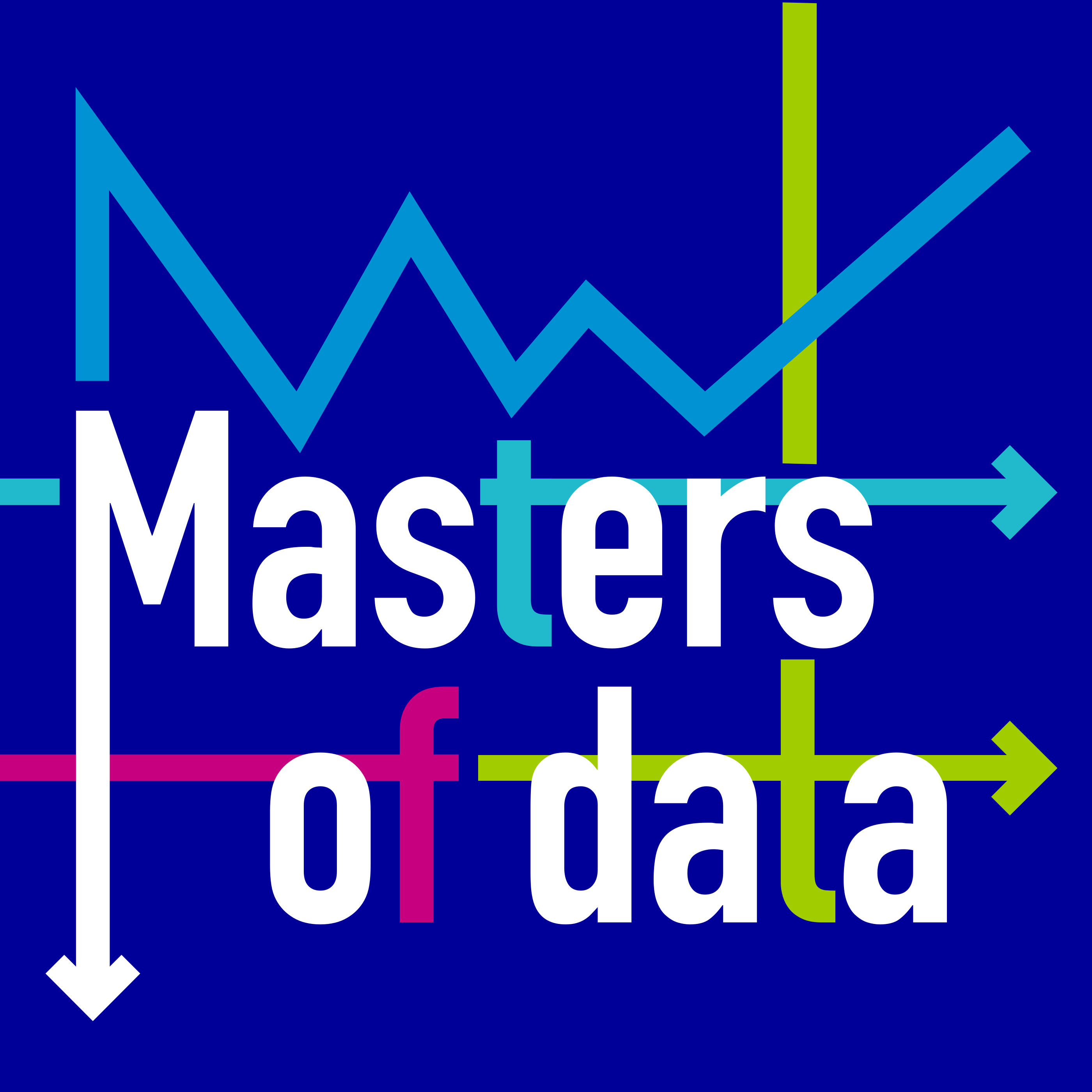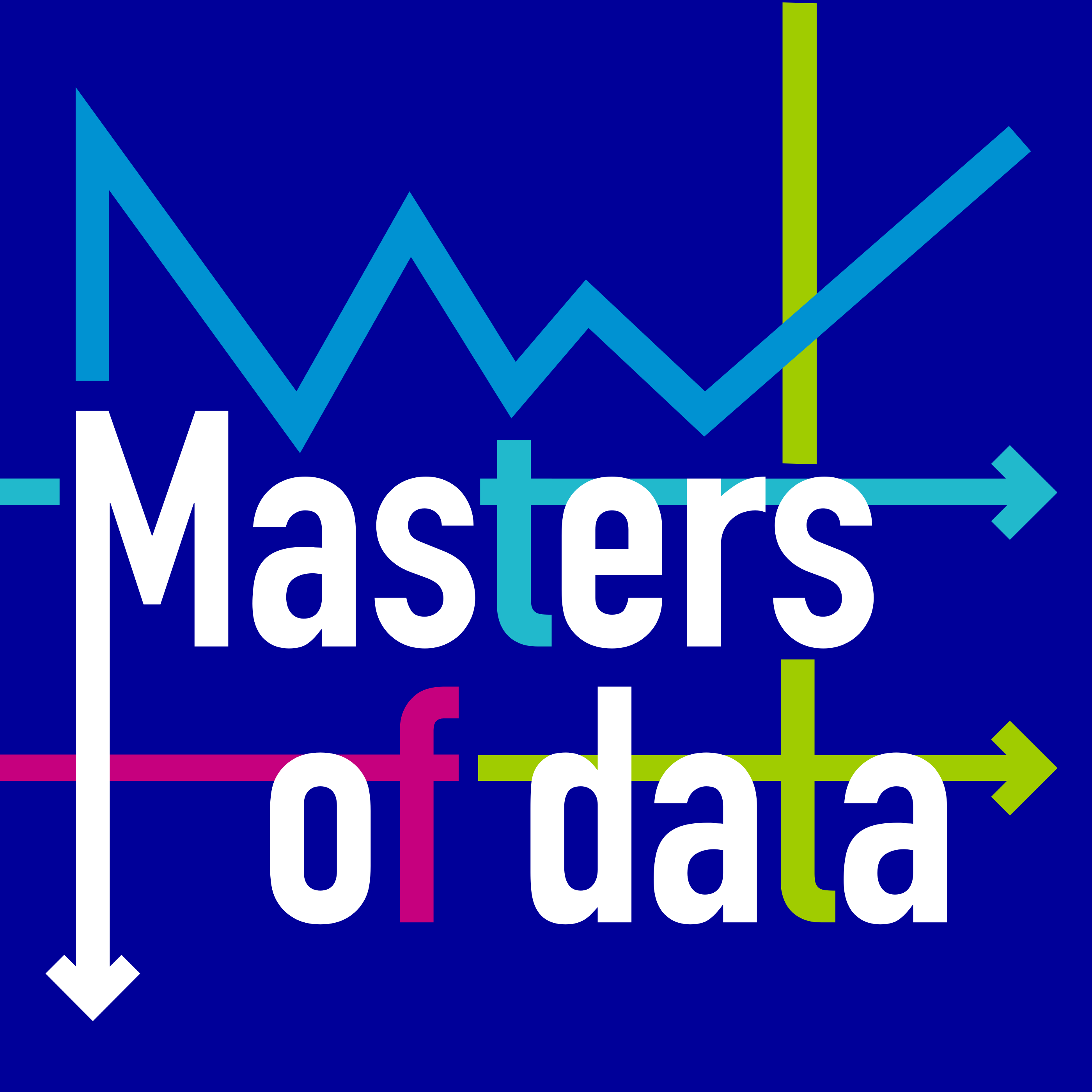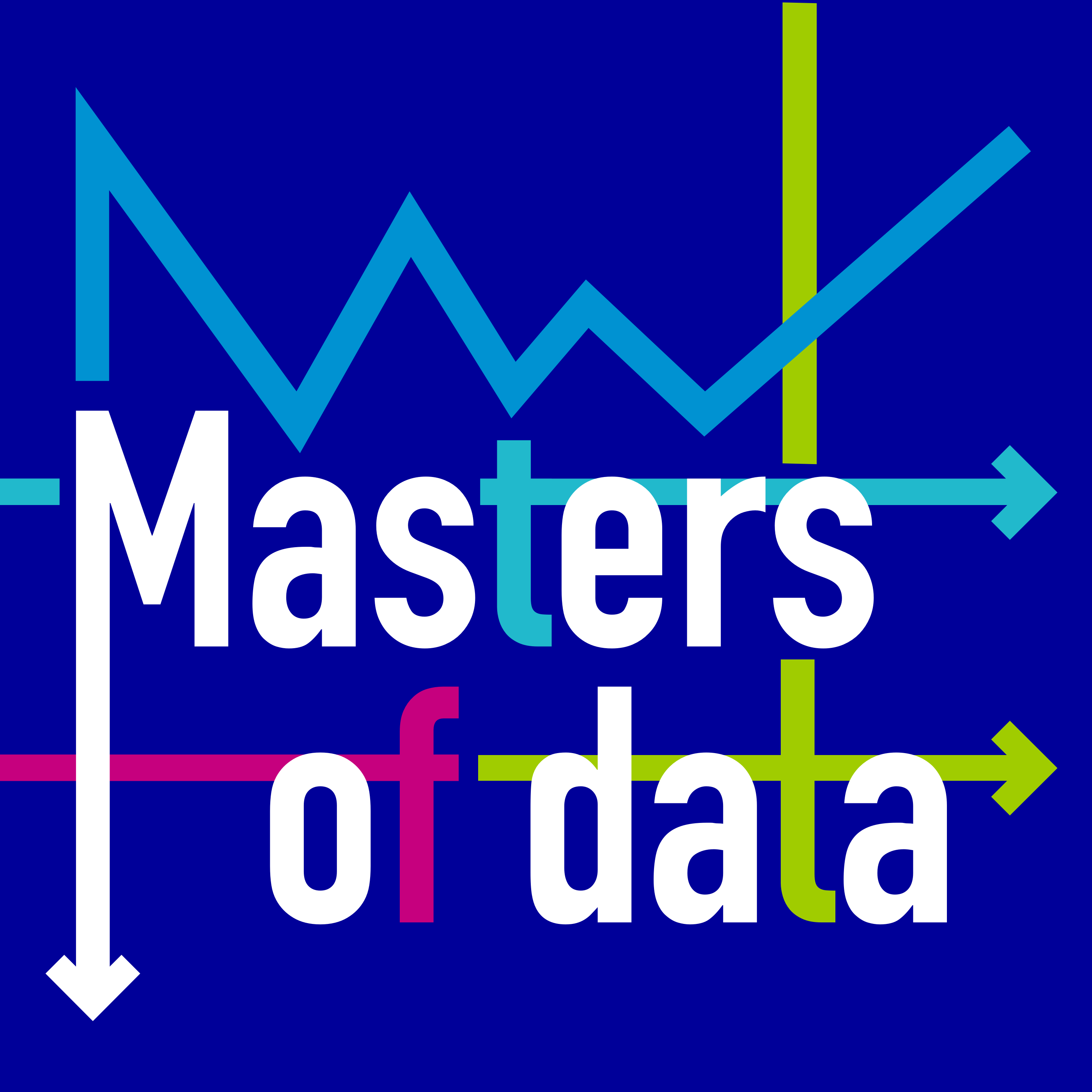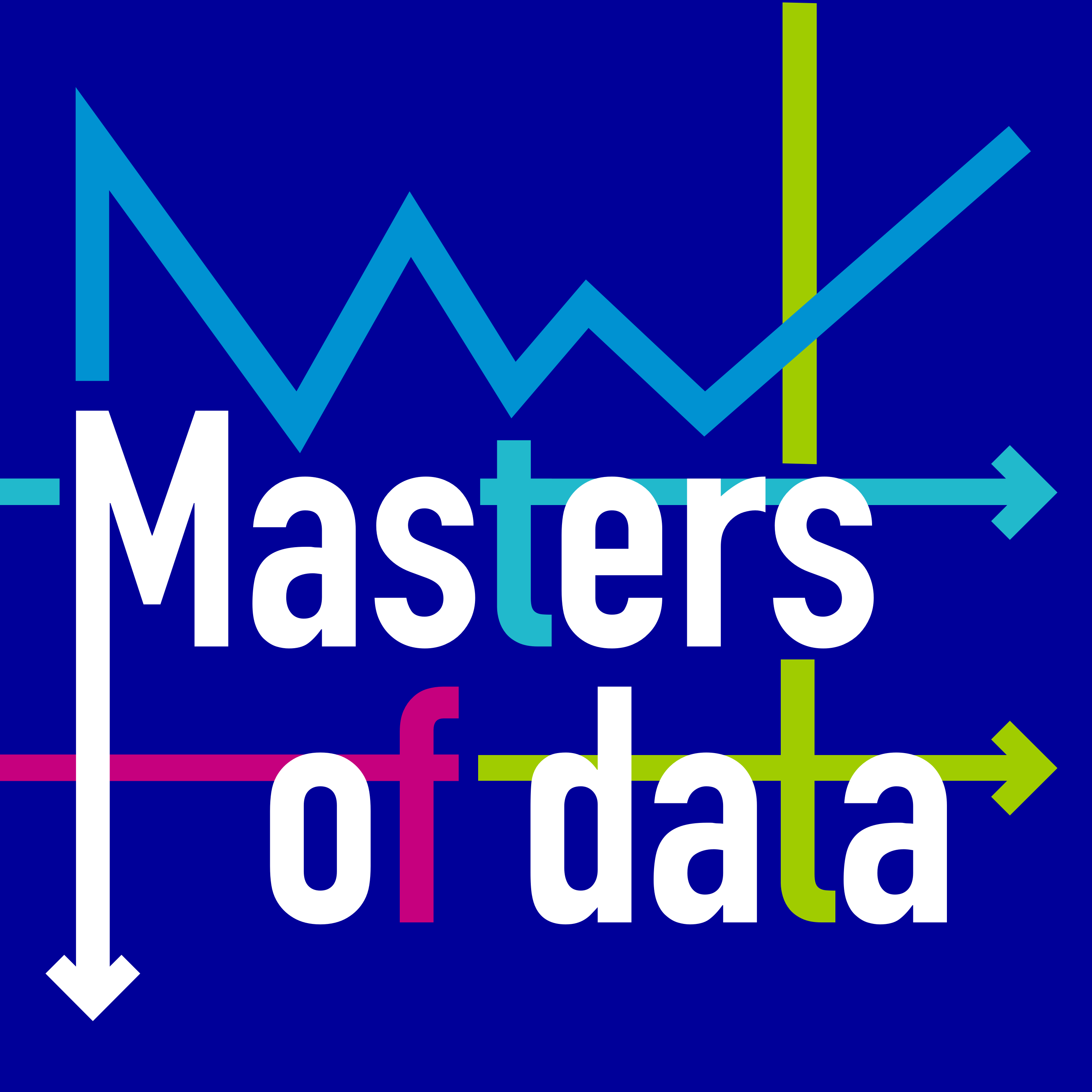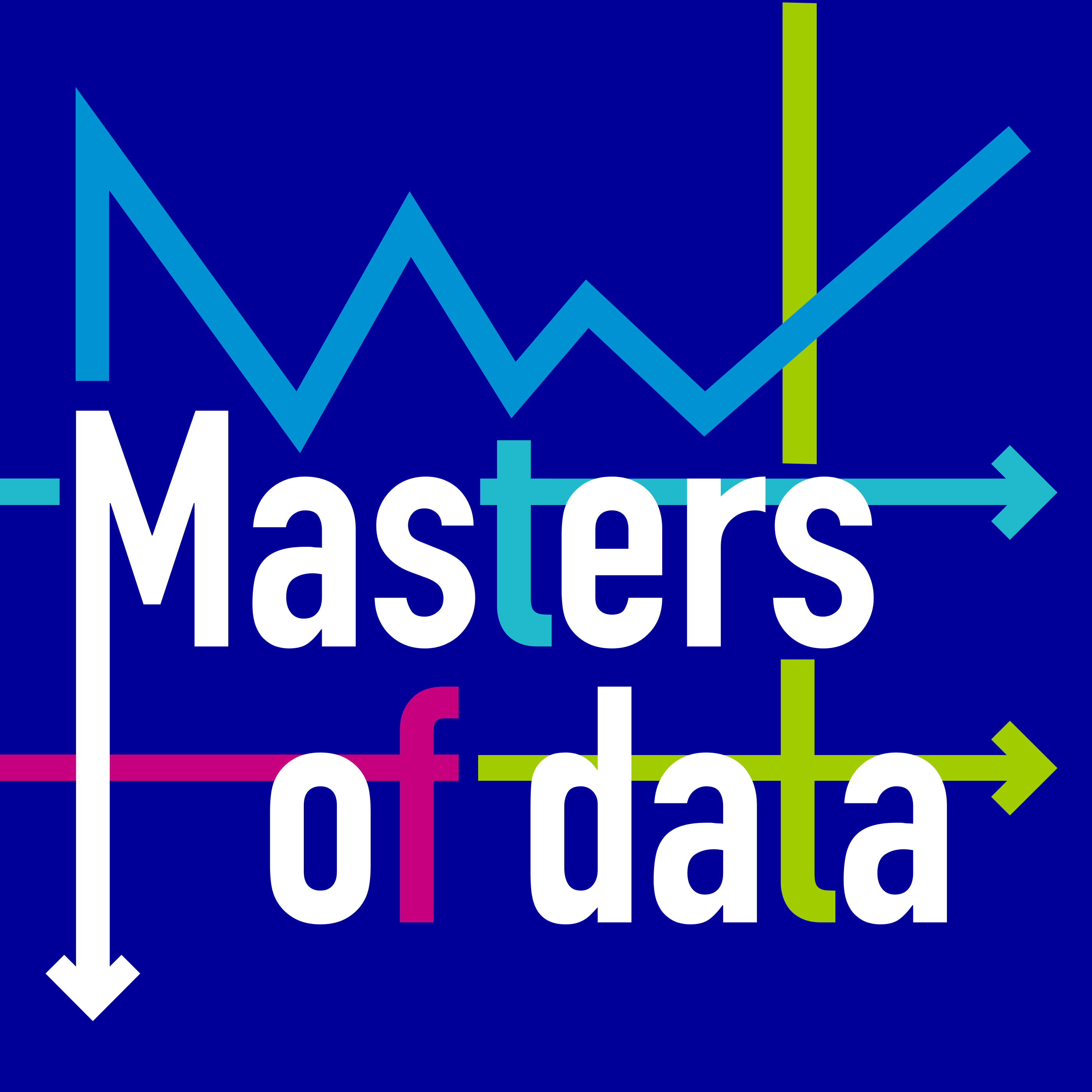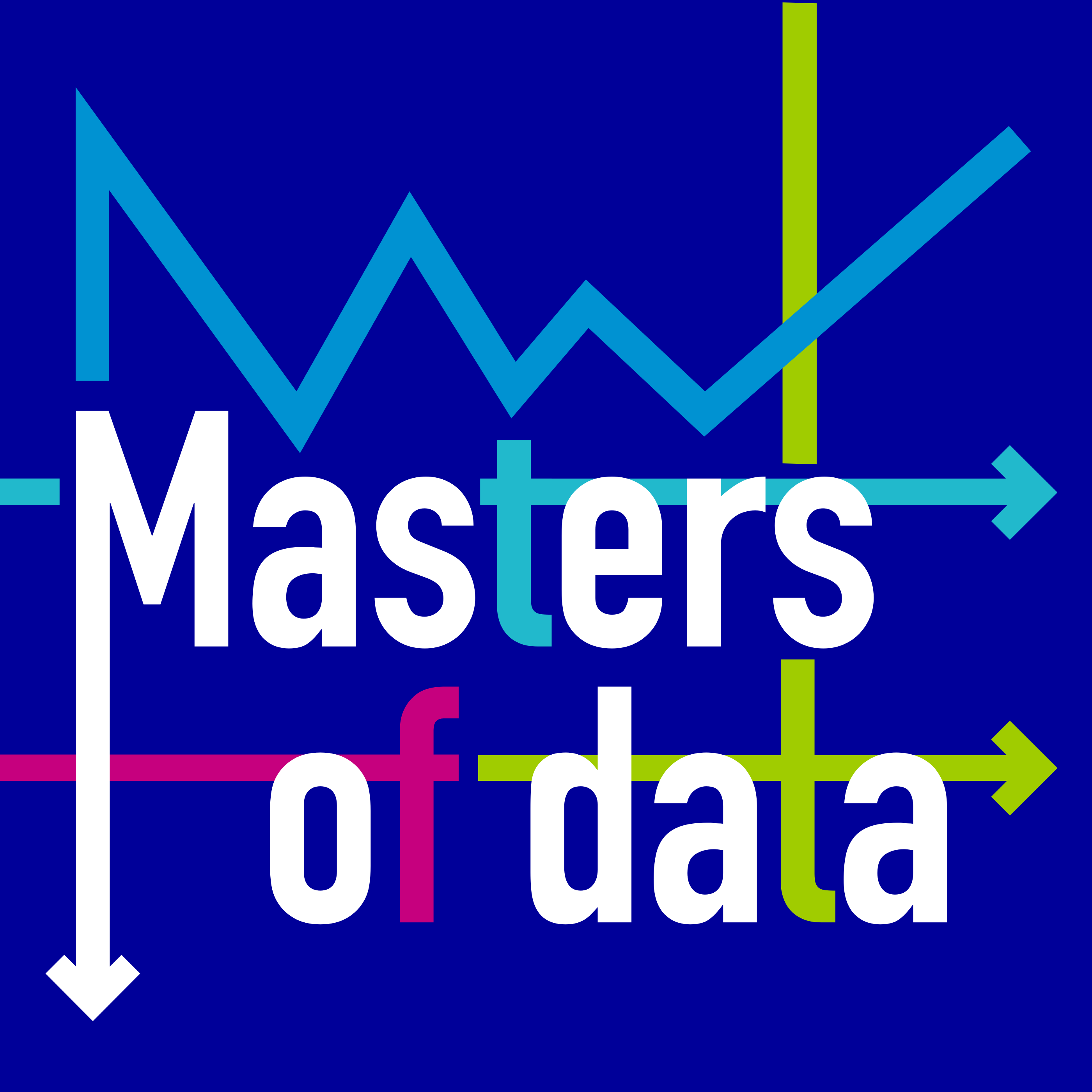Discover Masters of Data Podcast
Masters of Data Podcast

Masters of Data Podcast
Author: Sumo Logic
Subscribed: 109Played: 2,370Subscribe
Share
© Copyright Sumo Logic 2020. All rights reserved.
Description
We are talking to the people that build, run and secure the digital future. Who are the people bringing the new and the next? You heard it heard here first. Welcome to the new Masters of Data podcast.
75 Episodes
Reverse
Masters of Data is back! We have a new host and a new mission. On today's episode Sumo Logic's Chief Communication Officer, Aaron Feign, speaks with Dana Torgersen about goals for the podcast.Highlights of the conversation include: Talking about bringing back Masters of DataChallenges the podcast wants to addressTransformation and accelerating the adoption of technologies to battle disruptions like COVIDAlert fatigue and new technologies solving problems in securityThinking horizontally across different lines of an organization's business
Everything in modern tech — including observability — is actually a culture change. Observability is a different way of working, thinking, and composing a team. It is essentially a love letter to the future, helping the people who will support the application later. Instead of an operator sitting back and looking at a dashboard, observability tackles what can be done during the process of developing an application so that production can feel more comfortable. In James Governor’s word, “observability is about troubleshooting.”
James Governor is the co-founder of RedMonk, a developer-focused industry analyst company. After working as a tech journalist, James saw room for a new research firm with a different focus and thus RedMonk was born. Listen to this week’s episode to hear James and Ben discuss the generational shift in technology building, and learn more about how observability can help developers.
This week’s episode is the last installment of the special three-part series on observability in data. Thank you for joining us!
There are three types of people in the data world: mathematicians, scientists, and engineers. Mathematicians are interested in understanding things that are true or false. Scientists are interested in furthering knowledge and enjoy answering challenging questions. Engineers are interested in building things that are useful, so they can solve a problem that’s important. Engineers in the software industry are currently searching for ways to resolve the issues associated with microservices. Right now, the software industry is facing a massive architectural transformation, and engineers have the opportunity to create systems that solve important problems.
That’s why Ben Sigelman — CEO and co-founder, started Lightstep, to create something useful and impactful. He saw an opportunity to accelerate the industry’s transformation while improving the developer and end-user experience, and he took it. Using observability, he built something that could help people gain more confidence and understanding of their own system.
As an ex-Googler and co-creator of Dapper, Ben Sigelman witnessed the birth of microservices at Google. He learned a great deal from his experiences, and Lightstep is in many ways a reaction to and a generational improvement beyond those approaches. Sigelman’s fascination lies in deep systems and how they break, but he is also passionate about separating the telemetry from the rest of observability. There is a lot of noise in the marketplace and confusion about how to approach observability, but Sigelman is confident that in the next 5-10 years, applications could change the way the software actually works, not just the way we understand it. Listen to Ben Sigelman and Ben Newton discuss the future of observability, and learn more about how this transformation could impact the industry.
This week’s episode is the second installment of a special three-part series on observability in data. Tune in each week to hear about how the world of observability in transforming into a major player in the data realm.
Observability doesn’t have three pillars, and it is not a monitoring tool. While the concept of observability is often misunderstood, what it can do for ops is revolutionary and transformative. Observability is achieved when a system is understandable — which is difficult with many things failing at once in a complex system. Many large technology companies use systems to debug code and understand how it runs in production, but those tools are not available to engineers outside of those companies. That’s why Charity Majors — CTO and co-founder, started Honeycomb, to tackle the issues with logging, monitoring, and metrics. Despite the confusion surrounding observability, it can help us ask the right questions of our systems in a way that is predictable, fast, and scalable over time. Utilizing observability to fully understand complicated production systems makes the systems more resilient to errors. Listen to Charity and Ben discuss the innovations and revelations of observability, and learn more about this transformational tool in data. Say goodbye to spending all your time on debugging, and get ahead of those issues now.
This week’s episode is the first of a special three-part series on observability in data. Tune in each week to hear about how the world of observability in transforming from a major player in the data realm.
Data doesn’t live forever. The data will finish its life cycle at some point, but when that day comes what happens next? For years, large corporations have used different methods to physically destroy drives. However, modern problems require modern solutions. Nathan Jones, VP of Sales at White Canyon Software, gives us these solutions. We can turn to software destruction to help save us money and, most importantly, the environment. Utilizing software-based data destruction methods give physical drives another chance at being reused. Say goodbye to sticking nails in that drive.
The applications of artificial intelligence is seemingly never-ending. But, how do we find where AI can fit within our industries? In this episode, Dan Faggella, CEO and Head Researcher at Emerj, sits down with us to talk about where AI is currently and headed in the future. In fact, when we talk about AI it's important to recognize the significance that culture plays in furthering application, just as much as the science and algorithms.
Businesses and companies collect and rely on a lot of data. Until now, that data hasn't been the easiest to access or understand. Julie Lemieux, VP of Product Design and Research, talks to us about creating tools and processes to make data insights more accessible and inclusive. By eliminating the conflict between data teams and business users, everyone in the company, regardless of their background in data collection or reading, can confidently take the data and explore more of the insights and value the company can get from it.
The human resources, or human capital, industry has been going through massive change in how it thinks about data. Paul Rubenstein, Chief People Officer at Visier, talks us through the history and how data and analytics have been revolutionizing how HR departments work and the value they bring. In particular, Paul walks through how Covid-19 is upending how companies think about their people, but also how the data is better than ever.
Over his decades of experience, Mike Kavis from Deloitte, has seen a lot of successful, and successful cloud implementations. One clear lesson - technology is easy, but people are hard. Mike discusses how innovation has to be more than just implementing technology and tools. Successful enterprises have to break down the old silos and rethink their culture, rather than merely adopting technology layered over legacy processes and approaches to collaboration.
The rate of data growth and complexity is only accelerating. How do you decide what data is important? What data do you store for later? Simon Crosby, CTO at Swim.ai, discusses how real-time streaming analytics provides a better way to think about massive volumes of data from sources like traffic infrastructure and manufacturing. He discusses how you can use this data to build a model of your world - digital twins - and use that model to make better decisions.
Graph theory is all about relationships, and relationships are key to understand so many critical areas - like understanding the spread of a pandemic. Denise Gosnell and Matthias Broecheler from DataStax talk about what graph data is, why it matters, and fascinating use cases - including how it applies to Artificial Intelligence.
Bill Mew returns to Masters of Data to talk about evaluating cyber risk in a time of crisis like today. Bill dispels three myths that keep companies form taking decisive action and protect their data, employees, and customers. He also explains how cyber insurance actually works and why so many companies are much less covered than they think they are.
Jeremy Proffit and his compatriots in Charlotte, NC are thinking out of the box in order to meet the overwhelming need for face protection in this crisis. Jeremy, a long time 3D printing enthusiast, started printing face shields in his house and has helped start a movement to do this at scale in a mind-boggingly short amount of time.
One of the most controversial and discussed topics today is Artificial Intelligence - or AI, and the implications of it. Is AI good or bad. Are we being replaced? Is AI exacerbating discrimination? Our guest today are taking a much more practical view - one that seeks to capture the value of AI for business and help corporations large and small take advantage. Our guests: Marco Iansiti, the David Sarnoff Professor of Business Administration at Harvard Business School, and Karim R. Lakhani is the Charles E. Wilson Professor of Business Administration and the Dorothy and Michael Hintze Fellow at Harvard Business School.
Stacy Stephens and his co-founder created Knightscope with the lofty mission of making the United States of America a safer place. They are working towards this goal with robots - Robots that are running autonomously - every day, all day - and have demonstrably made their customers safer. Listen to how Knightscope is forging a different path than most startups and making a direct impact on their clients lives.
One of our recurring themes on this podcast is the application of data in the real world and how data science is adapting to the needs of the businesses it serves. This episode is a perfect example of that. Jorge Lozano leads the data science team at Steelcase. Steelcase was founded over a hundred years ago and is the largest office furniture manufacturer in the world. So, what does a company like Steelcase do with data and data science? Listen and find out.
If software is truly eating the world, then software release management determines how quickly it can chew. For better or worse, just writing code isn’t enough. Software Engineering teams have to manage large, complex codebases with lots of dependencies - all while trying to move fast. Rob Zuber, the CTO of CircleCI, knows this world inside and out. CircleCI helps companies get innovation to the market faster, and with better quality, and Rob is passionate about how data is a big part of that picture. So, without any further ado, let’s dig in.
Green tech. Solar Energy. What do you think when you here those words? Probably putting on your roof, right? Or maybe your local electricity provider. Wunder Capital is coming at it from a different direction. They are filling the gap to help finance commercial solar - think community solar project, solar panels on warehouses, and more. According to Dave Riess, Co-Founder & CEO at Wunder Capital, there is a lot of untapped potential.
In this episode, we talk with Nancy Gohring - a senior analyst at 451 Research. I have known Nancy for a few years, and I am always impressed with her perspective on the culture of IT Operations and the impact of the massive changes in the last few years - and that is what we talked about.
In this episode, we talk with Stephen O’Grady, co-founder and principal analyst at Redmonk. RedMonk is an industry analyst firm focused on software developers and helps companies understand and work with developers. In fact, Stephen wrote an amazing book “The New Kingmakers” that explains the rising influence of software developers. We talk with Stephen about how RedMonk uses data to help companies understand developers and how developers are taking over the world.










